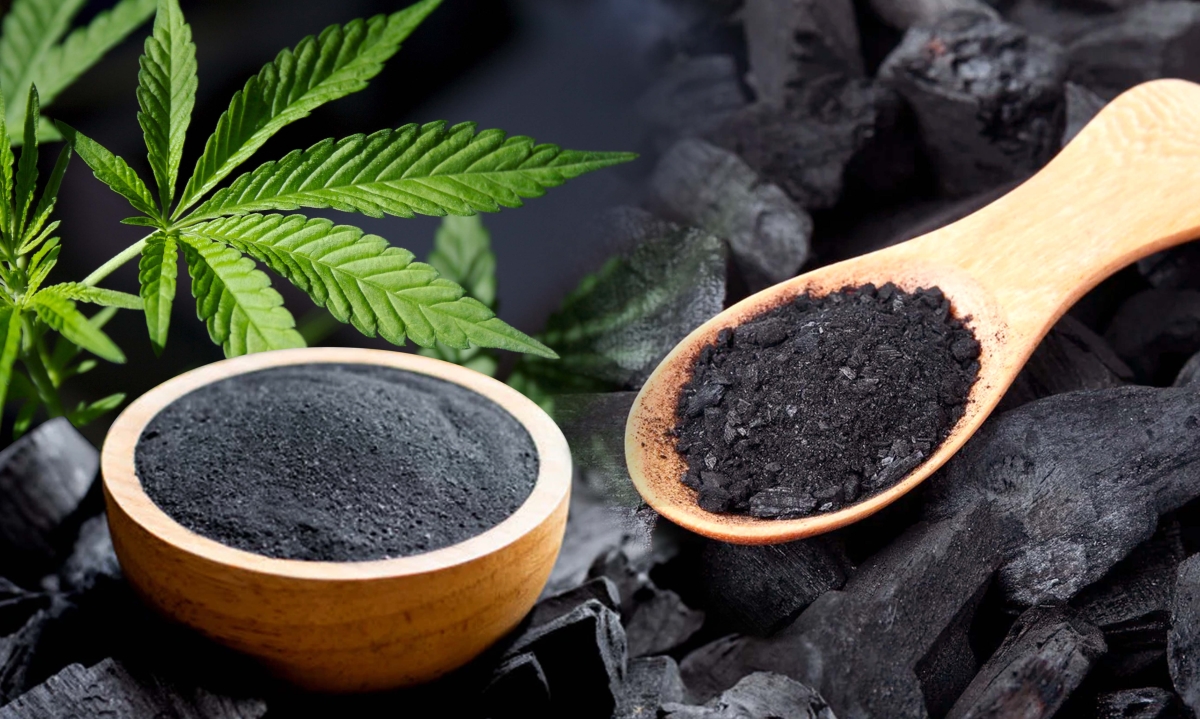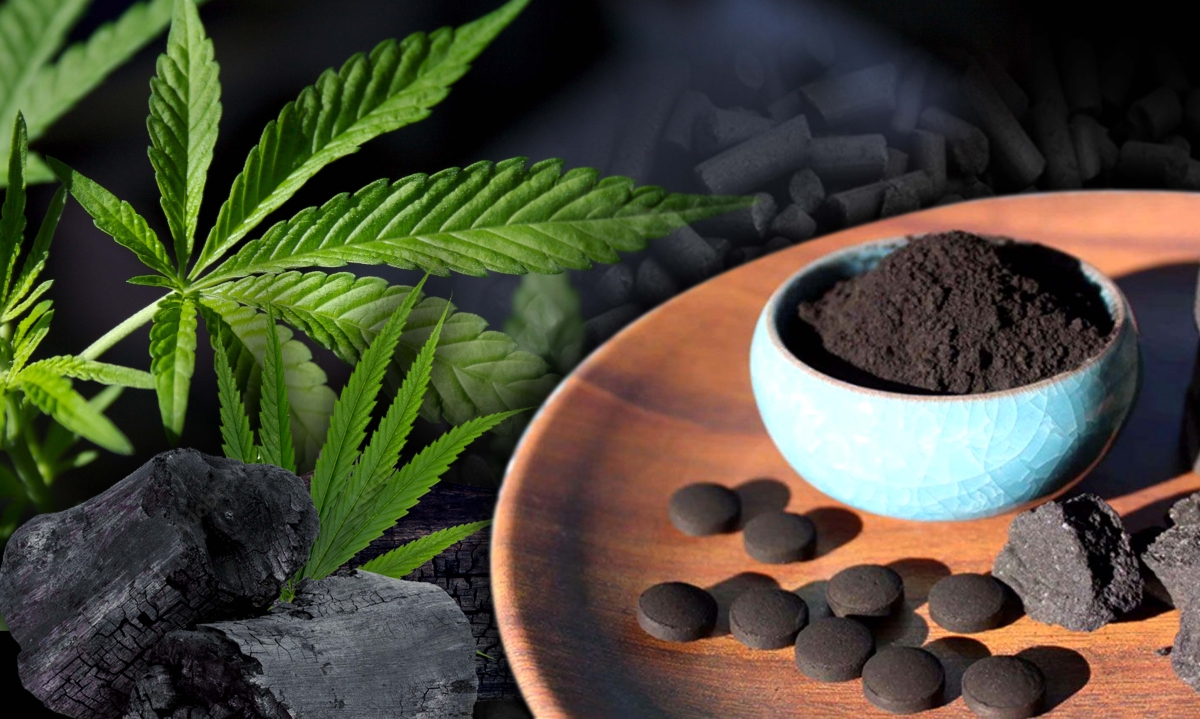Activated charcoal has gained attention as a potential aid in THC detoxification. While it’s widely used for various purposes, its efficacy in removing THC from the body is uncertain. This article provides insights into THC detox methods, but it’s essential to consult healthcare professionals for personalized advice. Activated charcoal THC is a highly porous substance that binds to toxins in the gastrointestinal tract, preventing their absorption into the bloodstream. Consuming activated charcoal may help trap THC and facilitate its elimination from the body, potentially speeding up the detox process.
Table Of Contents
Understanding Activated Charcoal for THC Detoxification
How fast does activated charcoal work?
Drug Tests and Detection Times
Detection Times for THC
How to lower your THC levels – Tips for Clearing THC from Your System
A Guide to Making Activated Charcoal at Home
Conclusion
Frequently Asked Questions
Understanding Activated Charcoal for THC Detoxification
Activated charcoal is a porous substance known for its ability to absorb toxins and chemicals in the body, including THC (tetrahydrocannabinol), the psychoactive compound in cannabis. While activated charcoal is often used in emergency medicine to treat drug overdoses or poisoning, its effectiveness in removing THC from the body for recreational or medical purposes is debated.
When ingested, activated charcoal binds to molecules in the gastrointestinal tract, preventing their absorption into the bloodstream and facilitating their elimination from the body through feces. Some believe that consuming activated charcoal supplements may help speed up the elimination of THC metabolites from the body, potentially reducing the duration of detection in drug tests.
However, the scientific evidence supporting activated charcoal’s efficacy in removing THC from the body is limited. While some studies suggest that activated charcoal may help reduce THC levels in urine or blood samples, the results are inconsistent, and more research is needed to confirm its effectiveness.
It’s essential to note that activated charcoal may interfere with the absorption of medications or other substances in the body, and its long-term use can lead to adverse effects such as constipation or dehydration. Therefore, individuals considering using activated charcoal for THC detoxification should consult with a healthcare professional before doing so and follow recommended dosages and precautions.
How fast does activated charcoal work?
Activated charcoal typically starts working within 30 minutes to an hour after ingestion. Upon consumption, its porous structure absorbs toxins, chemicals, and gases in the gastrointestinal tract. While it begins to bind to substances immediately, its effectiveness in reducing toxicity depends on factors such as the type and amount of toxin ingested, the dosage of activated charcoal administered, and the individual’s overall health and metabolism. Activated charcoal detox THC may continue to exert its detoxifying effects for several hours, although its peak efficacy occurs shortly after ingestion. Prompt medical attention is advised in cases of poisoning or overdose, alongside activated charcoal administration.
Drug Tests and Detection Times
Drug tests play a crucial role in various contexts, from employment screenings to legal proceedings. Understanding the detection times of different substances, including THC, is essential for individuals subject to drug testing.
Types of Drug Tests:
- Urine Tests: Urine tests are the most common method for detecting drug use. They are relatively non-invasive and can detect the presence of drugs and their metabolites, including THC, within a specific window of time.
- Blood Tests: Blood tests provide a more immediate detection of drug use but have a shorter detection window than urine tests. They are often used in situations such as accidents or DUI investigations.
- Saliva Tests: Saliva tests are less invasive than blood or urine tests and can detect recent drug use. They are commonly used in roadside screenings or workplace testing.
- Hair Tests: Hair tests offer a longer detection window, potentially spanning several months, but are less common due to their higher cost and invasiveness.
Detection Times for THC
The detection times for THC vary depending on factors such as frequency of use, dosage, metabolism, and the type of drug test. Generally, THC can be detected in urine for up to 30 days in frequent users but may only be detectable for a few days in occasional users. Blood and saliva tests typically have shorter detection windows, ranging from a few hours to a few days.
Factors Affecting Detection Times
Several factors can influence the detection times of THC and other drugs, including:
- Frequency and amount of drug use
- Metabolic rate and individual metabolism
- Body mass and composition
- Hydration levels
- Type of drug test used
How to lower your THC levels – Tips for Clearing THC from Your System
For individuals seeking to clear THC from their system before a drug test, several strategies may help, including:
- Hydration: Drinking plenty of water can help flush THC metabolites from the body through urine.
- Exercise: Engaging in regular exercise can boost metabolism and aid in the elimination of toxins, including THC.
- Dietary Changes: Consuming a balanced diet rich in fruits, vegetables, and fiber can support overall health and detoxification.
- Detox Products: Some detox products claim to help cleanse the body of THC, but their efficacy is often debated, and caution should be exercised when using them.
A Guide to Making Activated Charcoal at Home
Activated charcoal is a versatile substance known for its adsorbent properties, making it valuable in various applications, from water filtration to skincare. While commercial activated charcoal is readily available, making it at home can be a cost-effective option. Here’s a comprehensive guide to making activated charcoal.
Materials Needed:
- Organic material: Coconut shells, hardwood, or other organic matter.
- Metal container with a tight-fitting lid.
- Heat source: Stove, campfire, or oven.
- Water
- Mason jar or airtight container for storage.
Step-by-Step Process:
- Prepare the Organic Material: Break the organic material into small pieces or crush it into granules. Coconut shells and hardwood are popular choices due to their high carbon content.
- Carbonization: Place the organic material in the metal container and cover it with a tight-fitting lid. Heat the container over a flame or in an oven at around 400-500°C (750-930°F). This process removes volatile compounds and leaves behind carbonized material.
- Activation: Once carbonized, remove the container from the heat source and allow it to cool slightly. Submerge the carbonized material in water to activate it. This process creates pores and increases the surface area, enhancing its adsorption capabilities.
- Drying: Drain the activated charcoal and spread it out on a flat surface to dry thoroughly. Avoid exposure to direct sunlight, as this can degrade its adsorption properties.
- Storage: Once dry, store the activated charcoal in a sealed container, such as a mason jar or airtight bag, to prevent moisture absorption and maintain its effectiveness.
Uses of Activated Charcoal:
- Water Filtration: Activated charcoal can remove impurities and contaminants from water, making it safe for consumption.
- Air Purification: It can adsorb odors and pollutants from the air, improving indoor air quality.
- Skincare: Activated charcoal is a popular ingredient in skincare products for its ability to draw out toxins and impurities from the skin.
Safety Precautions:
- Use caution when handling hot materials and open flames during the carbonization process.
- Ensure proper ventilation to prevent the buildup of harmful gases.
- Store activated charcoal away from moisture to maintain its effectiveness.
By following these steps, you can create activated charcoal at home for various practical applications, from purifying water to enhancing skincare routines. Always exercise caution and proper safety measures when handling materials and heat sources.
Conclusion
Although activated charcoal is well-known for its detoxifying qualities, it is still unclear how well it works to eliminate THC from the body. Although some unconfirmed findings point to possible advantages, more investigation is required to precisely identify its involvement in THC detoxification. It’s important to use caution when using any detox procedure and to get professional help from healthcare providers if needed. Also, it’s critical for those who are subject to drug screening to comprehend drug tests and detection times. People can prepare for or lessen the effects of drug testing by being informed on the different kinds of drug tests, their detection windows, and the factors that affect detection times.
Frequently Asked Questions
1. What is activated charcoal?
Activated charcoal is a fine, odorless, and tasteless black powder made from natural materials such as coconut shells or wood. It is processed to have a large surface area and porous structure, which makes it highly effective at adsorbing toxins and impurities.
2. Do detox products effectively lower THC levels?
The effectiveness of detox products in lowering THC levels is debated. Some claim to accelerate the body’s detox process, but their efficacy varies, and some may have potential side effects. It’s essential to research products thoroughly and consult a healthcare professional if unsure.
3. How can I lower my THC levels quickly?
While there’s no guaranteed way to rapidly in lowering THC levels, staying hydrated, exercising regularly, and eating a balanced diet can help support the body’s natural detoxification process. Additionally, to help with THC metabolism and elimination, think about quitting cannabis consumption.
4. Is activated charcoal effective for passing drug tests for THC?
There is limited scientific evidence to support the use of activated charcoal as a reliable method for passing drug tests for THC. Other strategies, such as abstaining from cannabis use and staying hydrated, are generally more effective for detoxification.
5. How is activated charcoal used for THC detoxification?
Activated charcoal can be consumed orally in the form of capsules, tablets, or powder. It is typically taken with water or mixed into a beverage and consumed before or after consuming cannabis. However, its use for THC detoxification should be approached with caution and may not guarantee desired results.





